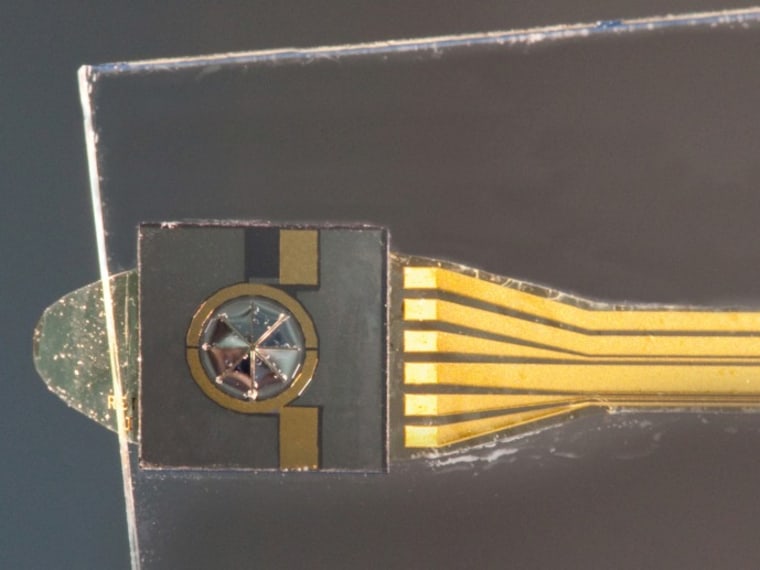People afflicted with severe hearing loss often cannot benefit from garden-variety hearing aids, necessitating complex surgery to install a special implant. But new technology from the Fraunhofer Institute could provide the best of both worlds: Huge improvements and simple installation.
Fraunhofer's device is also an implant, but one that is so small and comparatively efficient that it can be put in quickly and easily — making it a possibility for the extremely elderly or disabled, for whom major surgery is not an option.
The big advance is the German institute's new "electro-acoustic transducer," which translates electrical signals into vibrations. A microphone and relay outside the ear send audio and power over a wireless optical link to the inner ear, where the transducer picks it up and passes it on.
Existing implants work in a similar way, but use bulkier and less-efficient hardware that requires wires and potentially hours-long surgery. In contrast, Fraunhofer's device could be implanted in just a few minutes, with one incision.
There's still work to be done on the assembly and optimization of the parts; Hearing aids, like most implants, must be robust and last for a long time without maintenance and replacement.
Fraunhofer engineer Dominik Kaltenbacher is confident it will be a major improvement in the lives of people who suffer hearing loss. "This high performance is necessary for very good speech comprehension," he says in a release describing the technology, "Particularly for high-pitched sounds, which people who are severely hard of hearing find especially difficult to pick up."
Testing is scheduled for 2014, after which it will have to be approved by the necessary authorities before being available for general issue.
Devin Coldewey is a contributing writer for NBC News Digital. His personal website is coldewey.cc.
